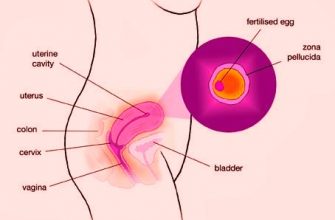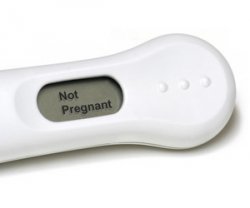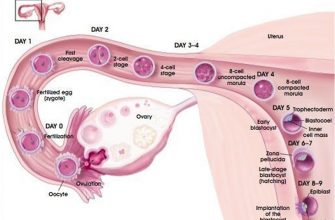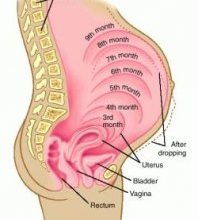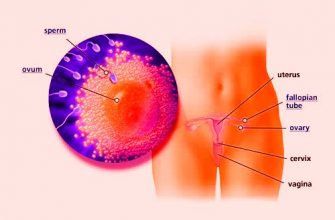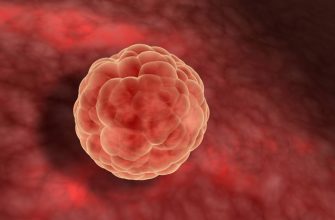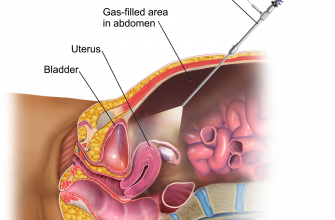The fifth week of pregnancy is the time when most women first discover that they are expecting a baby. The fetus has been developing for only three weeks though; and still, the HCG hormone level is already high enough to successfully use a home pregnancy test. This is already the time when most women schedule their first visit to the doctor.
- What Happens During the Fifth Week of Pregnancy?
- 5 Week of Pregnancy: Signs and Symptoms
- The Size of Fetus in 5 Week Pregnancy
- Brown Spotting in the Fifth Week of Pregnancy
- What to Do During the 5th Week of Pregnancy?
- 1 Week Delayed Menstruation and Negative Pregnancy Test
What Happens During the Fifth Week of Pregnancy?
Since your body has already started to experience significant changes, you may notice some slight pregnancy-related discomfort. It generally comes in the form of fatigue, drowsiness, sore breasts, frequent urination, or early nausea. In some cases, though, women report no problems at all.
On the outside, your new state still goes unnoticeable; yet, there is one perfect sign of pregnancy that almost always means you’re expecting (if you’ve been planning to have a baby): no menstruation. Approximately at this time the HCG hormone kicks in, and its high level in urine can be detected by the simplest home pregnancy tests. There exist both traditional test strips (dip strips) and electronic versions; you may want to purchase several items in order to get a clear and unmistakable result. However, some diseases and pathologic conditions can also lead to a positive HCG test even if you are not pregnant. Read the instructions on the packing carefully and visit a doctor immediately if anything goes wrong.
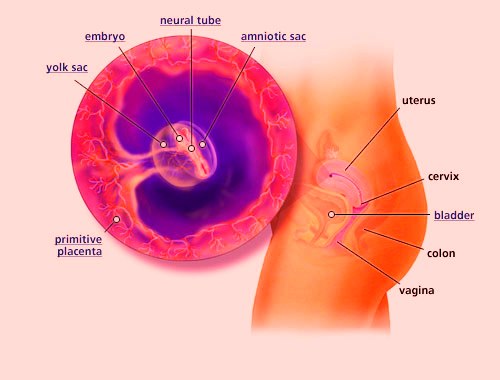
5 Week of Pregnancy: Signs and Symptoms
Aside from pregnancy tests, you can rely on the most widespread symptoms in the fifth week of expecting a baby.
They comprise:
- mercurial moods, low spirits, depressed state, anxiety;
- fatigue;
- drowsiness;
- morning sickness that in fact can trouble you at any time;
- higher sensitivity to odors;
- sore breasts that gradually become larger;
- darkening of areolae;
- feeling full or heavy because of the increased blood flow and pelvic engorgement;
- unusual food cravings;
- lower back pain;
- excessive thirst;
- excessive saliva;
- clear and odorless vaginal discharge.
Many symptoms that occur during the 5th week of pregnancy depend on individual peculiarities of the woman’s body. For instance, some women experience leg or foot cramps, while others complain about mild groin pain. It is fairly common to have a metallic taste of blood in your mouth (even if there is no bleeding) or cramps that seem menstrual-like. Many pregnant women suffer from bloating and excessive gas during the 5th week; if you have this problem, try using simethicone-based medication designed for small children.
It is too early for the belly to grow, but the baby is developing at an astounding pace, and before long you will notice more substantial changes in your body. For now, try not to over-exert yourself, especially at work; there is nothing more important than the adorable baby growing in your belly.
If pregnancy symptoms become a bother, sign up for a professional consultation. A qualified doctor will be able to tell if your signs and symptoms are normal or if your morning sickness has come too early and thus indicates potential problems with your liver. Most medication for toxicosis resulting from the baby’s waste traveling through your organism is safe and allowed for use in the early weeks of pregnancy. It is important to note, though, that this medication should be prescribed by a doctor.
The Size of Fetus in 5 Week Pregnancy
The pace of fetal development is positively astonishing: mere days ago, the tiny zygote morphed into a proper embryo, and now, the size of the fetus is comparable to that of a pen tip. In form, it resembles a tadpole with a rudimentary head, a tail, and a chest lump which indicates where the fetal heart is growing.
During this period:
- The fetus acquires a more distinct form; the heart starts beating and even might be visible on an ultrasound.
- Simultaneously, the circulatory system takes a more pronounced shape; the baby’s earliest blood vessels are forming.
- The yolk sac is replaced with a functional umbilical cord. Along with the placenta, it serves to deliver nutrients and oxygen to the fetus. The umbilical cord also works to remove waste.
- All vital organs are taking shape; the spinal cord and the gastrointestinal tract are already developing even though it is hard to believe given the baby’s tiny size.
When doctors evaluate the embryo, they measure it “crown to rump” and differentiate a top, bottom, front, and back. The latter has a groove that will seal later. This groove will eventually transform into the neural tube with a flat and wide top to grow into the baby’s brain. The embryo is cozily encased in protective membranes that ensure its safe and steady development.
Brown Spotting in the Fifth Week of Pregnancy
Light bleeding in the fifth week of pregnancy can cause severe anxiety. Pay utmost attention to the color of blood; if it is bright and red or pink, call your doctor immediately to check if he or she can see your problem as soon as possible. If the spotting is brown, risks are much lower.
This can happen if:
- the embryo has successfully implanted into the tender lining of your uterus and thus caused some light bleeding;
- your menstrual cycle was disrupted due to pregnancy but a bit of “old” blood and waste cells remained inside and have been discharged now.
If bleeding persists, visit your doctor promptly in order to exclude the possibility of miscarriage or ectopic pregnancy.
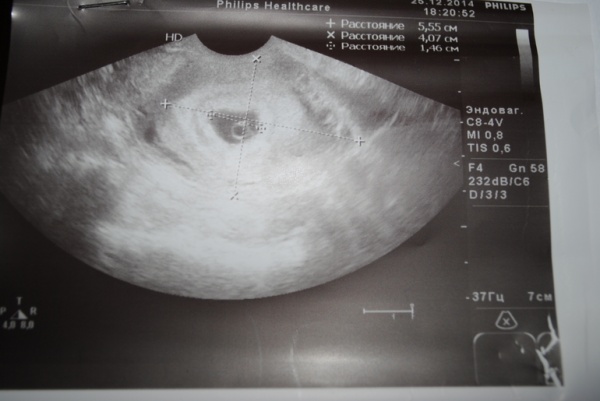
What to Do During the 5th Week of Pregnancy?
- Consider visiting your gynecologist for checking the overall state of your health. The doctor may prescribe safe medication to treat chronic conditions if you have any. Dietary supplements and special drugs for alleviating morning sickness should also be recommended by a specialist able to evaluate your personal need in vitamins and minerals. Vegetarians and vegans, for example, should pay utmost attention to consuming enough vitamin B12 which is found mainly in meat and dairy products. Talk to your doctor about the choice of supplements; you must ensure your baby receives all the vital nutrients even if you continue following vegetarian principles.
- Collect all necessary information about your partner’s health. It is also important to discuss health issues with his immediate family: parents and siblings. Your doctor should know what kind of diseases your partner had in his childhood years, what chronic conditions he has been diagnosed with and if there is a possibility of passing inherited conditions to the child.
- Most women are afraid of getting obese during pregnancy. Unfortunately, weight gains are unavoidable; the only thing you can do here is to keep them moderate, not excessive. However, dieting is strictly forbidden: the baby must receive all vital nutrients, including sufficient amounts of protein and fats.
- Try to devote more time to relaxation and sleeping. It is extremely important to rest as much as your body demands, not over-exert yourself and keep all the stress at bay. Emotional tension should be avoided at all costs; your mood and state of health, both physical and psychological, are key for adequate development of the fetus.
- If you smoke or drink alcohol, try to stop. Harmful habits increase the risk of damaging fetal internals during their development in the first trimester of pregnancy.
Nutrition in the 5th Week of Pregnancy
- Continue following a nutritious and well-balanced diet.
- Eat 5-6 times per day, take small portions and select fresh, healthy products.
- Do not forget about hydration; it plays a major role in boosting up your blood flow and delivering nutrients and oxygen to the baby. Fluid intake comprises not only plain water but also milk and fresh fruit juice.
- Choose whole-grain bread instead of white loaves. Whole-grain foods are richer in fiber, magnesium, and selenium. This also works for replacing white rice with its brown counterpart.
1 Week Delayed Menstruation and Negative Pregnancy Test
What if your menstruation is late for an entire week and the pregnancy test presents you with a negative result? Sometimes it still means that you are pregnant, and your test either is faulty or has low sensitivity to the HCG hormone. And yet, there are other causes for late menstruation.
They include:
- stress, depression, anxiety;
- intense physical exercise, too much sport, overtraining;
- jetlag;
- using specific medication like certain birth control pills;
- hormonal imbalance;
- thyroid disease;
- pathologic conditions of the uterus;
- poor diet (excessive amounts of carbohydrates in your menu).
If belated periods lead to anxiety, consult your gynecologist to discover their actual causes.


